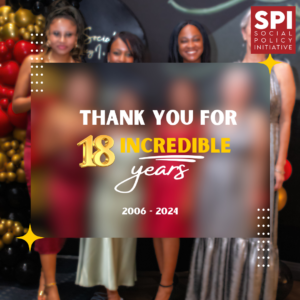The following is an excerpt from The Sowetan:
The government’s proposal of a statutory pension and insurance regime funded through mandatory contributions from workers and employers has received a lukewarm welcome from organised labour and civil society.
The department of social development published a comprehensive social security and retirement reform green paper on Wednesday, which proposes that employers and employees pay up between 8% and 12% of earnings to the new fund.
Trade union federation Cosatu, which has been calling for a comprehensive social security net, said while it had not properly considered the proposals, it welcomed that there was work being done.
Cosatu spokesperson Sizwe Pamla said the federation and its unions would sit and decide which proposals they accepted from the draft policy.
“That is something that we have been fighting for a long time. Now that there is some movement, we welcome that. But there has always been a problem when you deal with a policy paper. You expect that you are going to run into some very good ideas that are workable and acceptable to workers and that is what we hope for in this paper,” Pamla said.
Studies in Poverty and Inequality Institute (SPII) director Isobel Frye said the establishment of a mandatory social security fund was a positive step as it would be for a defined benefit rather than a defined contribution.
“Everybody will be guaranteed a decent retirement provision. The radical step is that it will do away with the thousands of private pension funds that currently exist and contributors will benefit from the scale, which means we will get much more for the money we save as there will be less administration costs,” Frye said.
Employees must pay up to 12% into a government social security fund: Zulu
Frye, who was part of the community constituency at the National Economic Development and Labour Council (Nedlac) when the National Social Security Fund (NSSF) was proposed, said it had been established that most South Africans were not good at saving for the future, hence the contributions to the fund had been made mandatory.
The green paper proposes that employers and employees pay up between 8% and 12% of their earnings as part of reforms triggered by the absence of a mandatory system for pension provision for retirement, death and disability benefits in SA. It says millions of workers are being excluded from “lifestyle-preserving” pension coverage, especially if they were poor and unable to afford private pensions.
“There is consensus that this gap must be addressed by introducing mandatory retirement, death and disability insurance for all workers. These mandatory benefits should be provided through a publicly offered National Social Security Fund (NSSF) operated on the principles of risk pooling and social solidarity,” the paper says.
While contributions made to pensions would be safe in their private funds, the paper proposes that future contributions be made to the NSSF.
The government is yet to give details on which funding model would be adopted for the basic income grant (BIG), but the paper points out that the proposed comprehensive social security reforms were also aimed at rolling it out.
Institute for Economic Justice’s Neil Coleman said the government’s final model for a basic income grant would have to ensure that wealthier South Africans make a contribution to help address unacceptable levels of poverty in the country.
“We think most South Africans will not mind making that contribution, if they are confident that it will go directly to the intended beneficiaries. The Covid-19 grant, despite some problems, has shown that grants can reach the hands of beneficiaries directly, and with minimal corruption, and all who need it will benefit from it,” Coleman said.
Social development department spokesperson Lumka Oliphant brushed aside concerns that the green paper was light on details on how contributions to the NSSF would be managed by the government.
“That is why it is in the public domain for purposes of comment. We want [the public] to highlight the places we have not covered. We are encouraging people to use this process to comment on the green paper. This process is supposed to ensure that we get everybody’s sense in the green paper for consideration,” Oliphant said.
Source: The Sowetan Live










